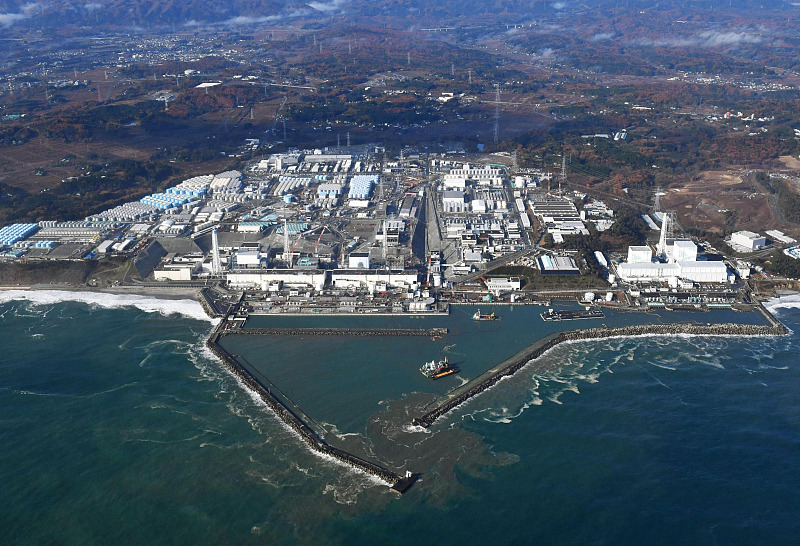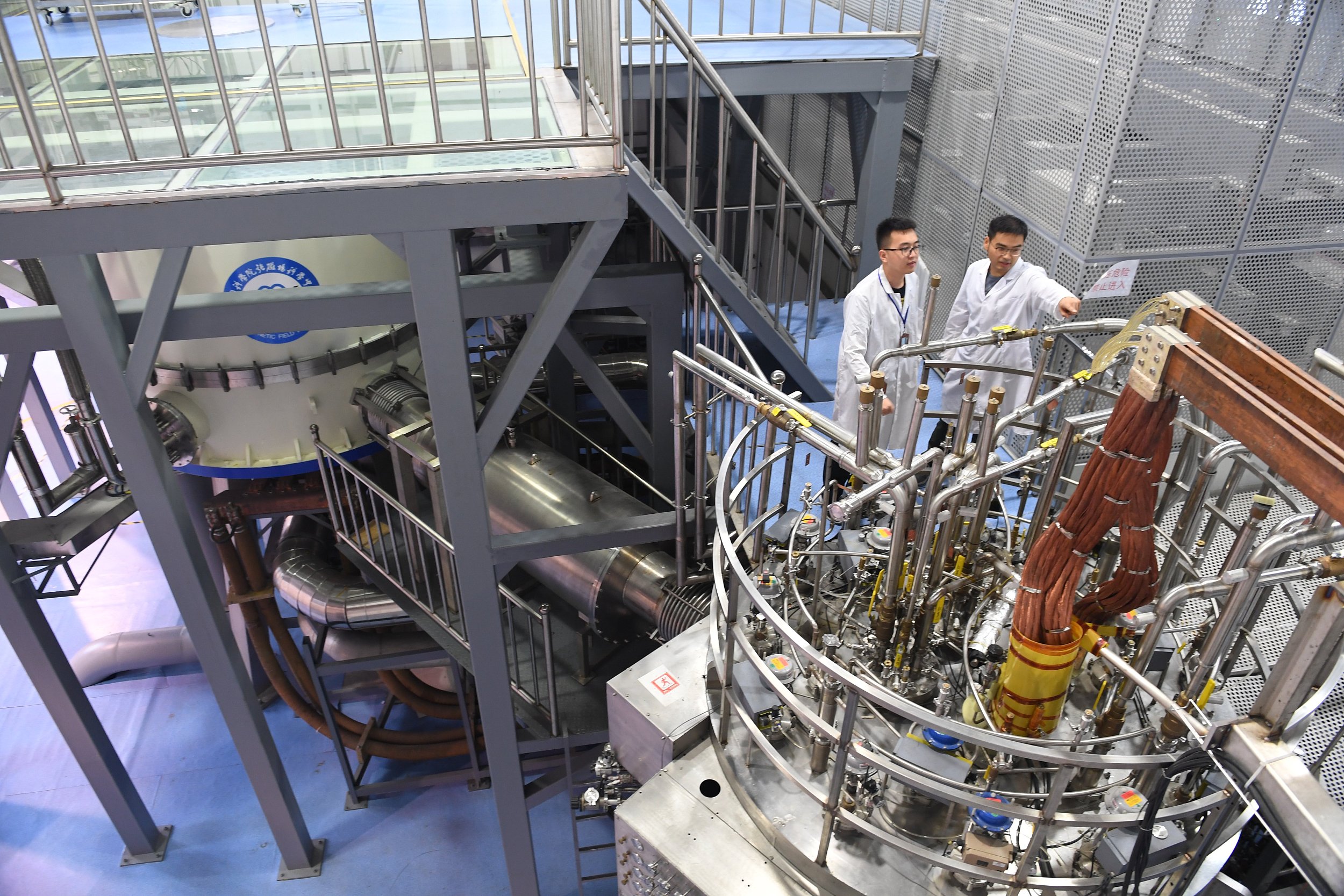Major Concerns About Japan's Radioactive Wastewater Dump
The full view of Fukushima Daiichi nuclear power plant. (PHOTO: VCG)
By QI Liming
In July, Japan's nuclear regulator approved a detailed plan for the release of treated radioactive wastewater from the Fukushima Daiichi Nuclear Power Plant into the Pacific.
This detailed discharging plan brings three serious concerns, namely dramatic damage to ocean ecology, the construction and re-leakage problems of the discharging pipes, and setting a bad precedent for nuclear wastewater disposal. These concerns from stake-holders and neighboring countries should not be ignored.
Purchasing domestic catches as compensation, ignoring other countries' loss
The fishing industry around Japan's Fukushima coast expressed disappointment and resignation over the decision, as the plan to begin releasing treated wastewater into the ocean moved one step closer to reality.
After years of painstaking efforts to convince the Japanese public and the rest of the world that their seafood is safe, the local fishing industry fears the ocean release will once again tarnish their reputation.
As if to appease critics, Tokyo has promised to buy fish catches as compensation if the industry suffers reputational damage. But what about other country's fisheries?
According to Tokyo Electric Power Company (TEPCO) and Japanese government officials, the potential health hazards from the radioactive wastewater will be treated to levels far below releasable standards, and impacts on environment and health will be negligible.
However, even after removing about 60 radioactive isotopes from the wastewater, tritium can't be extracted through using existing technology.
It's not a good idea to discharge wastewater far away from the coastline
In the release plan, TEPCO is going to transport the treated and releasable wastewater through pipelines from storage tanks to a coastal facility, where it will be diluted with seawater.
Then, an undersea tunnel with an outlet about one kilometer (0.6 miles) away will be used for discharge to minimize impacts on local fishing. It is clear that Japan is trying to minimize the damage on local fishing and the environment, regardless of the damage to its neighbors.
Before the construction of the undersea tunnel can even begin, however, TEPCO's proposal must win the backing of the local government in Fukushima prefecture and the two affected towns of Okuma and Futaba.
In addition, there is another big potential threat in the plan: the re-leakage of the wastewater in the tunnel can spread nuclear wastewater to residential living areas and seriously contaminate groundwater.
Japan's regulators solicited public comment and said they had received more than 1,200 responses. People voiced concern over whether the undersea tunnel would be earthquake-safe, and what was being done to protect workers.
Setting the wrong example of nuclear wastewater disposing
A Greenpeace report castigated the Japanese government for misrepresenting some safety aspects of the wastewater release.
"Not only is ocean discharge the cheapest option, it helps the government create the impression that substantial progress is being made in the early decommissioning of the Fukushima reactors," said Shaun Bernie, a senior nuclear specialist for Greenpeace East Asia.
Some experts have called for greater transparency, fearing unintended consequences of the operation. There is also concern about whether the discharge of enormous amounts of wastewater could set a bad precedent for dealing with future nuclear accidents.
Japan should seek neighbors' consent before releasing Fukushima wastewater
According to The Korea Herald, on July 26, South Korean President Yoon Suk-yeol said that Japan should seek the consent of neighboring countries, before moving ahead with its plan to discharge treated radioactive wastewater from the crippled Fukushima nuclear plant into the ocean.
China and Pacific Island nations have also voiced concerns over possible nuclear pollution in the Pacific many times.



